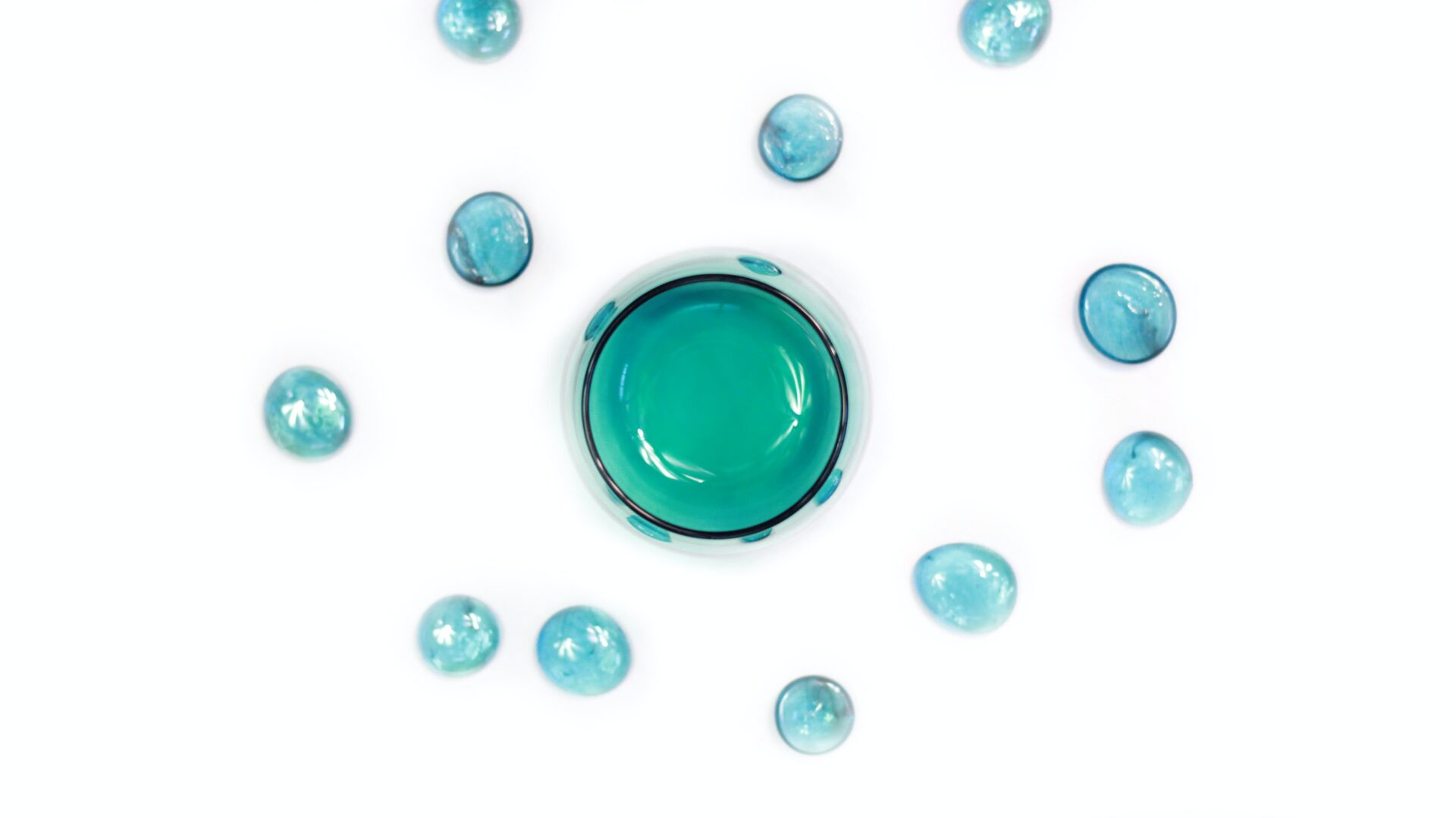Erectile dysfunction (ED) is a common problem among men, especially as they age. Many men are embarrassed to talk about their ED and don’t understand the potential causes. One of the most common questions is whether or not you can get an erection without testicles. In this article, we will explore the link between testicles and erectile dysfunction, as well as other possible causes of ED. We will also discuss treatments and lifestyle changes that may help improve your erections.Erectile dysfunction (ED) is a sexual health condition characterized by the inability to achieve or maintain an erection sufficient for satisfactory sexual intercourse. It is estimated that ED affects up to 30 million men in the United States. While it is common in older men, ED can affect men of all ages and is not necessarily a normal part of aging. The most common causes of ED are physical conditions such as cardiovascular disease, diabetes, and obesity; psychological conditions such as anxiety and depression; certain lifestyle factors such as smoking, drug use, and excessive alcohol consumption; and certain medications. Treatment for ED can include medications, lifestyle changes, psychological counseling, or surgery.
What Causes Erectile Dysfunction?
Erectile dysfunction (ED) is a common medical condition that affects millions of men around the world. It is defined as the inability to get or maintain an erection that is firm enough for sexual activity. ED can have a variety of causes, including physical and psychological factors. Physical causes can include heart disease, diabetes, hormone imbalances, and neurological problems. Psychological causes can include stress, anxiety, depression, and relationship problems. In some cases, a combination of physical and psychological factors are involved.
Heart disease is one of the most common causes of erectile dysfunction. This occurs when arteries become narrowed or blocked due to fatty deposits in the walls of the vessels. This restricts blood flow to the penis and can lead to ED. Diabetes can also cause ED by damaging nerves in the penis or reducing blood flow due to high blood sugar levels.
Hormone imbalances can also be a cause of ED if testosterone levels are too low or estrogen levels are too high. Low testosterone levels can affect libido and lead to erectile problems while high estrogen levels can interfere with normal functioning of erectile tissue in the penis. Neurological problems such as multiple sclerosis or stroke can also cause ED as they damage nerves in the penis that are necessary for normal erections.
Psychological causes are just as important as physical causes when it comes to ED. Stress and anxiety can interfere with sexual arousal and lead to difficulty achieving or maintaining an erection. Depression may also cause ED by making it difficult for a man to feel aroused or interested in sex. Relationship issues such as communication problems or feelings of guilt may also contribute to ED.
In some cases, a combination of physical and psychological factors may be involved in causing ED. It is important to talk with your doctor if you think you may be suffering from this condition so that you can get treatment that is right for you. With proper treatment, many men find relief from their symptoms and are able to enjoy an active sex life again.
The Role of Testicles in Erectile Dysfunction
Erectile dysfunction (ED) is a condition that affects a man’s ability to achieve and maintain an erection. It can be caused by a variety of factors, including physical or psychological issues. Testicles play an important role in ED, as they are responsible for producing testosterone, the male sex hormone that is necessary for sexual arousal. Testosterone also helps regulate the production of other hormones, such as luteinizing hormone and follicle-stimulating hormone, which are essential for normal sexual function.
In men with ED, the testicles may not be able to produce adequate levels of testosterone. This can lead to decreased libido and difficulty achieving or maintaining an erection. Other physical causes of ED may include poor blood flow to the penis, nerve damage, or trauma to the testicles or penis. Psychological causes include anxiety and stress.
Testosterone replacement therapy (TRT) is often recommended for men with ED who have low levels of testosterone. TRT can help restore normal levels of testosterone in the body, which may improve symptoms of ED. It is important to note that TRT should only be used under medical supervision and after consulting with a doctor about potential risks and side effects.
It is also important to note that there are lifestyle changes that can help improve symptoms of ED in men with low testosterone levels due to aging or other factors. Eating a balanced diet rich in fruits and vegetables, exercising regularly, reducing stress levels, quitting smoking and reducing alcohol consumption can all help improve erectile function in men with ED. Additionally, speaking openly with your partner about your feelings and concerns may help reduce stress related to sexual performance anxiety.
Overall, testicles play an important role in erectile dysfunction by producing testosterone which is necessary for normal sexual function. Low levels of testosterone can cause difficulty achieving or maintaining an erection as well as decreased libido. Testosterone replacement therapy may be recommended for some men with ED who have low testosterone levels but this should only be done under medical supervision after consulting with a doctor about potential risks and side effects. Additionally, making lifestyle changes such as eating a healthy diet, exercising regularly and reducing stress levels can also help improve erectile function in men with ED due to low testosterone levels or other factors.
How Testicles Affect Erectile Dysfunction
Erectile dysfunction, also known as impotence, is a condition where a man has difficulty achieving and maintaining an erection during sexual activity. While there are many possible causes of erectile dysfunction, testicular health is one of the most important factors in determining the success or failure of erectile function. The testicles play an integral role in the production of testosterone, the hormone responsible for sexual arousal and libido. Low levels of testosterone can lead to difficulty achieving and maintaining an erection. Therefore, it is essential for men to take measures to ensure that their testicles are healthy if they wish to prevent erectile dysfunction.
Testicular health can be improved by making sure that the scrotum is kept cool at all times. Heat can damage the delicate cells that produce testosterone, leading to decreased production and resulting in lower levels of testosterone in the body. Wearing loose-fitting clothing and avoiding tight underwear or pants will help keep the testicles cool and prevent heat damage that could lead to erectile dysfunction. Regular exercise is also important for improving testicular health as it helps to circulate blood throughout the body more efficiently, allowing more oxygen and nutrients to reach the testes.
In addition to keeping the scrotum cool and exercising regularly, men should also pay attention to any changes in their physical appearance or function related to their testicles. If they experience any pain or swelling in their scrotum or notice any lumps on their testicles, it is important for them to seek medical advice as soon as possible as this could be a sign of a more serious underlying condition such as cancer or an infection that could lead to further complications down the line.
It is clear that taking good care of one’s testicular health should be a priority for all men if they wish to maintain healthy sexual functioning. With proper care and attention, men can ensure that their bodies are producing sufficient amounts of testosterone which will help them achieve stronger and longer lasting erections when engaging in sexual activity.
Can You Get an Erection Without Testicles?
It is possible to achieve an erection without testicles, although it is not very common. The most common way to get an erection without testicles is through the use of a penile prosthesis or penile implant. Penile implants are surgically implanted devices that allow a man to achieve an erection without the need for testicles. They work by inflating the penis with air or saline, which causes it to become rigid and erect.
In addition to penile implants, there are other treatments available for men who want to achieve an erection without testicles. One such treatment is intracavernosal injections, which involve injecting medication directly into the penis in order to stimulate blood flow and create an erection. This type of treatment is usually recommended for men who have experienced difficulty achieving or maintaining an erection due to nerve damage or other physical factors.
There are also medications available that can help men achieve and maintain an erection without testicles, such as Viagra and Cialis. These medications work by increasing blood flow to the penis, allowing it to become rigid and erect more easily. However, these medications should not be taken if you have any existing medical conditions or are taking any other medications, as they could interact with each other and cause potentially serious side effects.
In addition to medical treatments, there are also lifestyle changes that can help increase a man’s chances of achieving and maintaining an erection without testicles. Regular exercise can help improve circulation throughout the body, including the penis, while reducing stress levels can help relax the muscles of the penis and make it easier for blood to flow into it. Eating a healthy diet rich in fruits and vegetables can also help improve circulation throughout the body, allowing more blood flow into the penis when needed. Finally, avoiding smoking and alcohol can also help improve overall health as well as sexual health.

Diagnosing Erectile Dysfunction with Testicles
Erectile dysfunction (ED) is a common condition that affects many men of all ages. Diagnosing ED can be difficult, but testicles can provide important clues. To diagnose ED, a healthcare provider will typically perform a physical examination and ask questions about the patient’s lifestyle and medical history. During the physical examination, the healthcare provider will check the size and shape of the testicles for any abnormalities or signs of infection. If an infection is present, additional tests may be needed to determine the cause and proper treatment. In cases where no infection is present, the healthcare provider may order blood tests to measure hormone levels or Doppler ultrasound to evaluate circulation in the testicles.
Treating Erectile Dysfunction with Testicles
Treatment for ED depends on the underlying cause. For some men, lifestyle changes such as quitting smoking or losing weight may help improve their symptoms. In other cases, medications such as Viagra or Cialis may be prescribed to help improve erections. For men whose ED is caused by a lack of testosterone or other hormonal imbalances, hormone replacement therapy may be recommended. In some cases, surgery to repair damage caused by prostate cancer or other conditions may also be needed. In addition to these treatments, there are also natural remedies that can help improve erections and sexual performance.
Testicle massage is a popular natural remedy that is said to improve sexual performance and reduce symptoms of ED. The massage involves gently massaging each testicle in a circular motion for several minutes at a time. The massage should not be painful and should not cause any discomfort or bruising of the skin. It is important to only use gentle pressure when massaging the testicles and avoid vigorous movements that could cause injury or irritation.
In addition to massage, there are also supplements available that claim to treat ED by increasing testosterone levels naturally. However, it is important to note that there has been limited research into these supplements and it is not known if they are effective in treating ED in all cases. It is always best to speak with a doctor before starting any supplement regimen as this could interfere with other medications you are taking or have adverse side effects if taken incorrectly.
The Link Between Low Testosterone and Erectile Dysfunction
Low testosterone levels can lead to a number of health issues, including erectile dysfunction (ED). Testosterone is the main male sex hormone, and it helps to regulate many bodily functions, including sexual performance. When testosterone levels are too low, it can lead to ED. This is because testosterone helps to stimulate the production of nitric oxide in the body, which is important for maintaining healthy blood flow and achieving an erection. Without enough nitric oxide production, a man may not be able to get an erection or maintain it long enough for sexual intercourse.
Testosterone levels naturally decline with age, but there are other factors that can cause a man’s testosterone levels to drop. These include stress, lack of sleep, obesity, certain medications and medical conditions such as diabetes or heart disease. In addition to ED, low testosterone levels can also cause fatigue and mood swings.
If you suspect you may be suffering from low testosterone levels or ED due to low testosterone levels, it is important to see your doctor for testing and treatment. Your doctor may prescribe medication or recommend lifestyle changes such as exercising regularly and eating a balanced diet in order to help boost your testosterone levels naturally. In some cases, your doctor may also recommend therapy or counseling if there are underlying psychological factors contributing to your ED.
By making lifestyle changes and speaking with your doctor about medication options or therapy for underlying issues such as stress or depression that could be contributing to your ED symptoms due to low testosterone levels, you can help improve your overall health as well as find relief from ED symptoms caused by low testosterone levels.
Treatments for Erectile Dysfunction in Men
Erectile dysfunction (ED) is a common condition among men, and it can have a significant impact on their quality of life. Fortunately, there are many treatments available to help men manage their ED symptoms and restore their sexual function. These treatments range from medications and lifestyle modifications to surgery and other procedures. Each treatment option has its own benefits and risks, so it’s important to discuss all of your options with your doctor before making any decisions.
Medications are the most common treatment for ED. Commonly prescribed medications include phosphodiesterase-5 inhibitors (PDE5Is), which work by increasing blood flow to the penis, allowing for better erections. Other medications include testosterone replacement therapy (TRT) and intracavernosal injections that directly target the penile vasculature. Each medication has its own side effects, so it’s important to discuss these with your doctor before starting any medication.
In addition to medications, lifestyle modifications can also help improve ED symptoms in some men. Making changes such as quitting smoking, exercising regularly, and reducing stress can all help improve sexual function in some men. Additionally, some men may benefit from psychotherapy or counseling as they deal with the psychological aspects of ED.
If medications and lifestyle modifications are not enough to manage ED symptoms, surgery or other treatments may be needed. Penile implants are one option that can be used to restore erectile function in some men. This involves surgically inserting an artificial device into the penis that can be manipulated manually or automatically for erection when desired. Other treatments include penile injections or vacuum pumps that use suction to draw blood into the penis.
For men with testicular issues such as undescended testicles or testicular torsion, surgery may also be necessary to repair the issue and restore fertility if necessary. Undescended testicles can often be treated laparoscopically while testicular torsion will typically require open surgery to repair any damage caused by twisting of the spermatic cord. In both cases, recovery times vary but typically require several weeks off work depending on the extent of the procedure performed.

Conclusion
The link between testicles and erectile dysfunction is complex. As demonstrated, testes are necessary for producing testosterone, which is important for maintaining normal erectile functions. Testes may also have a psychological impact on erectile function due to the associated emotions and confidence levels. However, men with testicular cancer can still achieve an erection if their testosterone levels remain within a healthy range.
In summation, although having testicles is not a prerequisite for getting an erection, they are still vital for maintaining optimal sexual health. Therefore, it is important to get regular medical check-ups to ensure that your testes are functioning properly and that your testosterone levels remain within the normal range. Additionally, psychological factors related to confidence and self-esteem can also influence erectile dysfunction in men.
Ultimately, it is important to remember that although having healthy testes plays an important role in achieving an erection, there are other factors that can contribute to the problem as well. Therefore, it is important to consider all possible causes when trying to find a remedy for erectile dysfunction.




